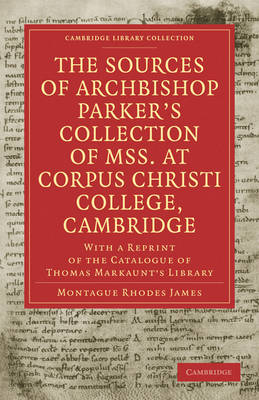Cambridge Library Collection - History of Printing, Publishing and Libraries
9 primary works • 28 total works
Lists of Manuscripts Formerly in Peterborough Abbey Library
by Montague Rhodes James
A Catalogue of the Medieval Manuscripts in the University Library, Aberdeen
by Montague Rhodes James
The Manuscripts of Westminster Abbey
by Joseph Armitage Robinson and Montague Rhodes James
Bibliotheca Pepysiana: Volume 3, Mediaeval Manuscripts
by Montague Rhodes James

